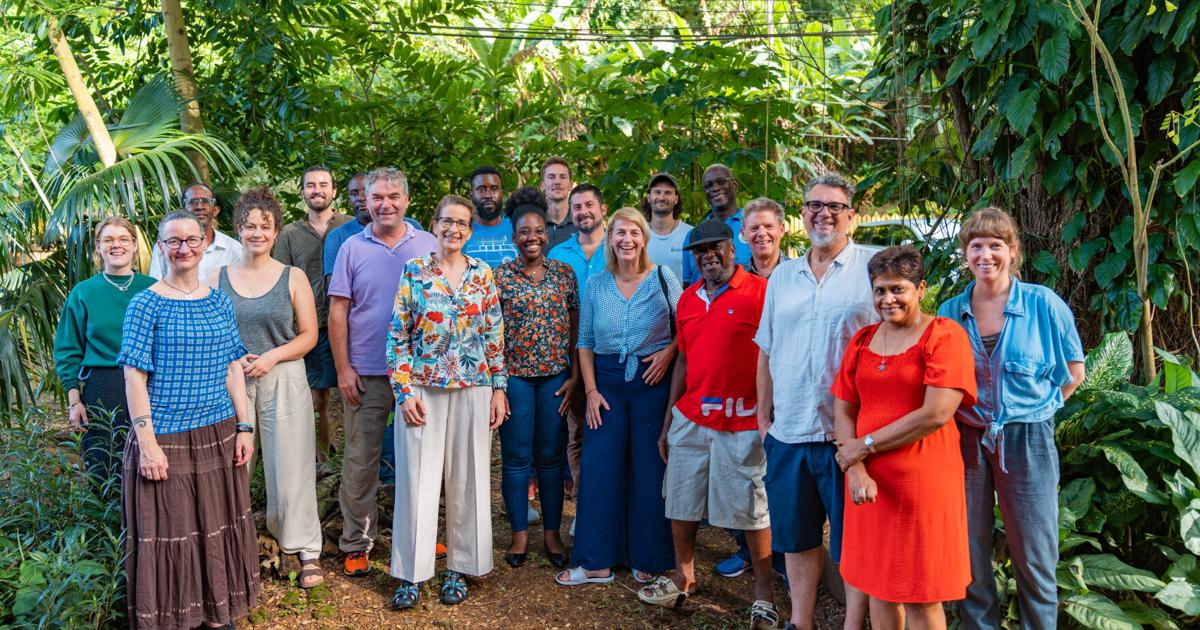
Over the past year, the German Federal Foreign Office provided significant support to improve scientific and cultural exchange between Tobago and Germany as well as celebrate North-east Tobago’s artists and Main Ridge Forest Reserve.
With endorsement and assistance of the German Embassy in Trinidad, the Environmental Research Institute Charlotteville (ERIC) was able to host two bilateral workshops bringing together local stakeholders and German academic institutions.
The first conference focused on fostering international cooperations to develop a long-term monitoring plan for the Biosphere Reserve and culminated in cooperation agreements between German academic institutions and the Tobago House of Assembly as well as the Tobago Biosphere Management Alliance. These agreements open the path to implement tailored research and study programmes for the North-East Tobago UNESCO – Man and the Biosphere Reserve, using internationally recognised tools adapted to the specific needs of communities. Participating academic institutions included: the Leibniz Centre for Tropical Marine Research (Bremen University); the Biosphere Reserves Institute (Eberswalde University for Sustainable Development); the Faculty of International Business, Institute of Tourism, Travel & Hospitality (Heilbronn University of Applied Sciences); the Faculty of Geography and Education and UNESCO Chair on Observation and Education of World Heritage and Biosphere Reserves (Heidelberg University) and the Caribbeanist Labs on Religion, University of Texas at Austin.
Since early 2025, it is now possible for NGOs, governmental agencies, and students looking to study in Germany to get in contact with the German partner institutions and benefit directly from these cooperation agreements.
A second workshop brought together representatives from the Academy of Fine Arts, Munich, the Caribbean Art Collection, Berlin, gifted artist from the North-East Tobago UNESCO Biosphere Reserve, THA officials, and the Tobago Biosphere Management Alliance. Again, collaboration agreements were signed to strengthen knowledge transfer, fine arts development, facilitation of exhibitions, documentation of North-East Tobago’s authentic cultural heritage and student exchange programmes.
Demonstrably, the designation of North-East Tobago as a UNESCO Man and the Biosphere Reserve proved its value to secure support in addressing challenges that are shared with other Caribbean islands.
Within less than one year the first collaborations materialise: Tobago artists are featured by the Caribbean Art Collection in Berlin (http://www.caribbean-artcollection.de), a follow-up conference is planned with the Eberswalde University for Sustainable Development (https://www.hnee.de/en), applications are prepared to establish a weather station to monitor climate change and parameters such as Sahara dust or toxic gases released from rotting sargassum seaweed with the Heidelberg University (https://rgeo.de/en) and student and research exchange programmes regarding sustainable tourism with the Heilbronn University (https://www.hs-heilbronn.de/en/tourism-management).
It is now in the hands of Tobago stakeholders to use this opportunity, which is unique amongst our Caribbean Island neighbours, and create tangible benefits for conservation, economy, and people.



